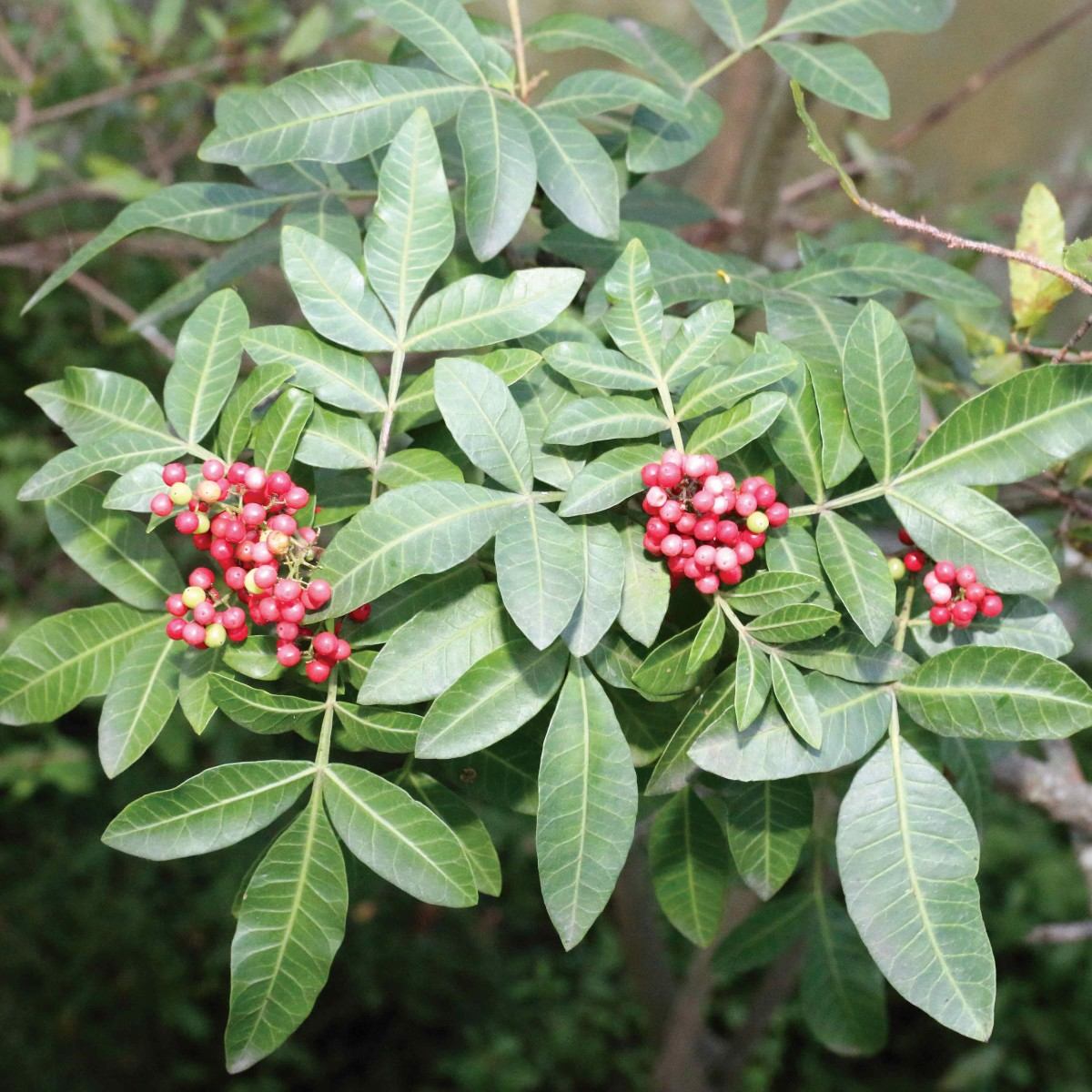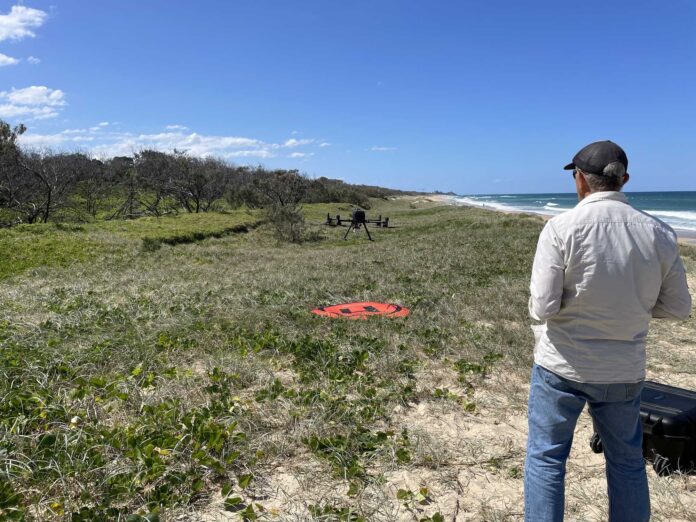The battle against a South American weed that’s killing coastal plants has taken a high-tech turn.
Drones, artificial intelligence and multispectral mapping will be used in a trial to try to stamp out the broad-leaf pepper tree in a hard-to-access area on the Sunshine Coast.
The weed is growing in bushland foreshore areas between Point Cartwright and Wurtulla.
Introduced as a garden ornamental, the tree, which can grow 10m high, has escaped gardens and invaded coastal areas.
Its berries are spread by birds and animals, and the plant contains toxic resins that can affect human and animal health.
The biggest concern, however, is that it smothers and replaces native plants, throwing out the biodiversity of dunes.
Sunshine Coast Environment and Liveability Councillor Peter Cox said the trial combined three innovative techniques to detect the invasive weed tree.
“The first stage, which is complete, was to capture images using a drone,” he said.
“For stage two we will partner with Queensland University of Technology who will train artificial intelligence to recognise the weed tree.
“And lastly, multispectral mapping will use sensors to map the trial area.

“This will give us more information to help manage the area so we can continue to protect and enhance the region’s biodiversity.
“This particular location, between Point Cartwright and Wurtulla, is rather tricky, as the soil can’t be disturbed in some areas due to the potential for unexploded ordnance to still be in the area.
“This area was fired upon as part of artillery training during World War II but the shells didn’t explode on impact as designed.
“We will see if it’s possible to use the information gathered to create a detailed, high-resolution map of where the broad-leaf pepper is in the reserve, and then trial solutions to remove the weed tree in addition to the weed management already occurring along this coastal strip.”
Cr Cox said the techniques were being trialled on a small scale to test the opportunities and constraints to see if it could be applied to a larger scale or to identify other weeds.
QUT researcher Dr Fernando Vanegas Alvarez said artificial intelligence, drone technology, and advances in imaging sensors could greatly benefit environmental management and ecological assessments.
“At QUT, we are transferring the knowledge and expertise we obtained from research in remote sensing, machine learning and deep learning to enable the detection, assessment and mapping of vegetation in large areas,” he said.
“In particular, we are developing models to detect invasive species such as broad-leaf pepper and assess the health of native ones such as pandanus trees along the Sunshine Coast.”
Funded by the Environment Levy, the trial is part of council’s Invasive Weeds Project, which is exploring alternative weed management practices that could be used to manage invasive plants across the region.
Help keep independent and fair Sunshine Coast news coming by subscribing to our FREE daily news feed. All it requires is your name and email at the bottom of this article.





